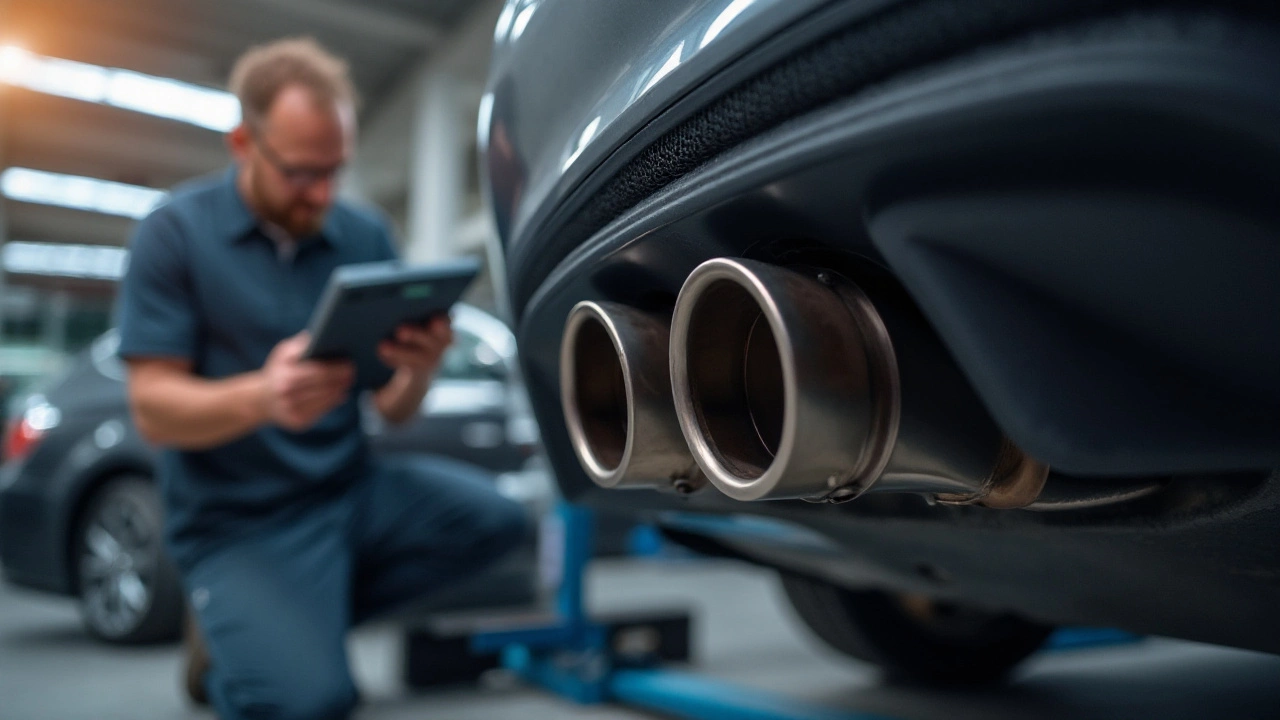Muffler Delete – What You Need to Know
When working with muffler delete, the removal of the muffler to change exhaust flow and noise. Also known as exhaust cut, it reduces back‑pressure, adds a louder tone, and can tweak power output. This process is tightly linked to the exhaust system, which includes pipes, resonators, and catalytic converters, and directly influences engine performance by altering scavenging efficiency. At the same time, it affects fuel efficiency and the overall sound level you hear while driving.
Why People Choose a Muffler Delete and What to Watch Out For
The key takeaway is that a muffler delete can give your car a more aggressive growl and, in some cases, a small horsepower bump because the exhaust gases flow with less restriction. For street racers and track enthusiasts, that raw sound is often worth the trade‑off. However, the change isn’t free. Removing the muffler can raise noise complaints, fail local noise‑limit regulations, and even trigger a check‑engine light if the oxygen sensors see unexpected flow patterns. The altered back‑pressure can also affect torque delivery, making low‑end power feel thinner while high‑rpm power may improve slightly. If you’re after fuel savings, the result is mixed – a freer flow can let the engine run cooler, but the louder exhaust may cause the ECU to adjust fuel trims, sometimes worsening MPG.
Another practical angle is emission compliance. A muffler works with the catalytic converter to help keep exhaust gases clean; taking it out can increase visible fumes and may make your car fail an MOT test in the UK. Some owners opt for a straight‑pipe or a high‑flow resonator instead of a full delete to keep a degree of back‑pressure while still gaining sound. Choosing the right material— stainless steel versus mild steel— matters for durability; corrosion can lead to rusted holes that worsen both sound and performance over time. Installation is usually simple: unbolt the muffler, slide a pipe or resonator in its place, and seal with clamps. Yet a poor fit can cause rattles or exhaust leaks that affect engine vacuum and sensor readings.
Before you commit, weigh the pros and cons against how you use your vehicle. If you spend most of your time on the highway, a louder exhaust may be more of a nuisance than a benefit. For weekend track days, the added sound can be a morale boost, and the slight power gain might be noticeable on a short straight. Think about local council noise ordinances, insurance implications, and any warranty coverage that could be voided by a modification. In short, a muffler delete is a trade‑off between sound, performance, legality, and long‑term reliability.
Below you’ll find a curated set of articles that dive deeper into the specifics— from how exhaust changes affect engine performance, to real‑world cost estimates, to step‑by‑step installation tips. Whether you’re a DIY enthusiast or just curious about what a muffler delete could mean for your ride, the posts ahead give you practical insights to make an informed decision.

Exploring the Impact of Muffler Deletes on Fuel Efficiency
Jan 16 2025 / AutomotiveMuffler deletes have become a popular modification with car enthusiasts, but whether they actually improve miles per gallon (MPG) is a topic of debate. This article takes an objective look at the mechanics behind muffler deletes and their influence on a vehicle's performance. Readers will learn how exhaust systems work, along with potential benefits and drawbacks of removing the muffler. Discover if this modification aligns with your vehicle goals and what experts suggest before making changes.
VIEW MORE